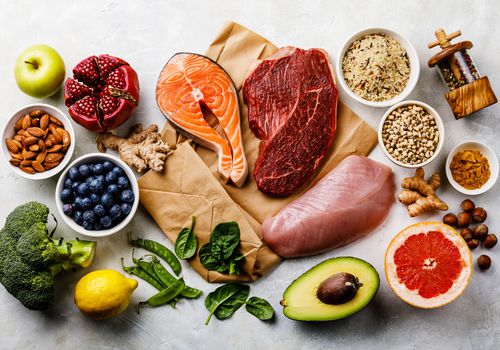Almost two-thirds of the autumn season has passed and even though coffee shops and restaurants are already rolling out their winter menus, we here at All and About think that it’s important to remind everyone how the benefits some of the foods and flavours play a key role in this season’s cuisines. So without further ado, here are some reasons why you should include some of this season’s stars in your diet.
 Pumpkin
Pumpkin
Yes, we started with one of the most typical foods associated with the season, but for good reason. These “fruit vegetables” often enjoyed in their large, orange form pack a great deal of fibre, beta-carotene, C and E vitamins as well as minerals such as potassium, magnesium and iron. So including this squash in your diet can support your digestive, immune and organ health and help protect your eyesight. Pumpkins tend to be eaten cooked and although cooking them — as well as other fruit and veg — does reduce their vitamin C levels, there are still many benefits to reap from them. So whether you prefer to add pumpkins to your desserts and stews, or even if munching on their seeds is more your thing, there’s probably a pumpkin dish out there for you.
 Butternut squash
Butternut squash
Also hailing from the squash family, this petite sister of the pumpkin offers similar health benefits to its more seasonally popular counterpart. It contains the highest levels of vitamin A of all the squashes around. Though more commonly associated with savoury dishes, this versatile veggie can be enjoyed in both a main course and a dessert.
 Apple
Apple
We’ve all heard and probably laughed off that old saying that says something about apples and doctors, but there truly is more to this seemingly ordinary fruit than what meets the eye. Studies have shown that including apples in your diet might help ward off neurological diseases such as Alzheimer’s because of their richness in antioxidants such as quercetin that can stave off brain-cell death. Researchers from the University of Florida have also found a link between daily apple consumption and lower cholesterol in older women. Like other produce, apples contain high levels of vitamin C and fibre and provide benefits cooked or raw. Apple pies and apple butter? Yes, please!
 Cinnamon
Cinnamon
Yes, we know, it’s not technically a “food” but it is a spice that provides a characteristic seasonal flavour to seasonal dishes and is good for your health too. For instance, ground cinnamon used in warm autumn drinks, like spiced hot apple cider can aid digestive health. There’s also some evidence that the spice can benefit people with high blood pressure and type 2 diabetes, but more research needs to be done to confirm those benefits. Cinnamon also contains antioxidants and is high in manganese. Giving your food a special twist with this spice won’t just do wonders for smell and flavour, but will also up the ante on the health side of things.
So there you have it, some health-related reasons to continue to indulge in autumn cooking until the season officially ends (which on the 22nd of December, by the way!) or beyond…we won’t tell if you don’t.
Sources:
- https://healthyeating.sfgate.com/benefits-pumpkin-4477.html
- https://www.bbcgoodfood.com/howto/guide/health-benefits-butternut-squash
- https://www.nutrition-and-you.com/butternut-squash.html
- https://www.medicalnewstoday.com/articles/267290.php
5. https://www.bbcgoodfood.com/howto/guide/health-benefits-cinnamon
By Tesneem Ayoub






Leave A Comment
You must be logged in to post a comment.